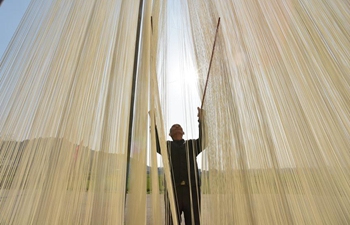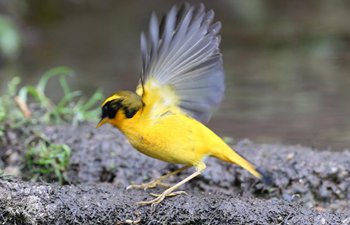CHICAGO, Dec. 20 (Xinhua) -- Having one parent work in science, technology, engineering or math (STEM) field makes it more likely for girls to perform better in math and to enroll in a "hard sciences" college degree in programs such as engineering, architecture, math and computer science.
And this effect is larger for girls than for boys, a study by researchers at the University of Michigan (UM) and University of Arkansas found.
In 2004, researchers asked children to assess their own perception of their ability to do math and tested their math skills with an exam. Boys scored higher on the exam than girls did, but the difference between the scores was small, according to Frank Stafford, co-author and an economist at the UM Institute for Social Research.
However, boys tended to rate themselves more highly than girls rated themselves. Sixty-four percent of boys as compared to 50 percent of girls who performed in the higher end of math test scores reported the highest levels of math ability.
Even the boys who tested poorly in math rated themselves as good at math. In the lower end of the math test scores, boys continued to be more optimistic, with 29 percent of them reporting highest levels of ability as compared to 17 percent of girls.
The researchers then followed up with these students in 2014 to track what subjects they majored in at college. When boys reported the highest levels of math abilities, the probability for them to major in a hard sciences field increased by seven percentage points, while the probability for girls increased by only two percentage points.
The researchers saw similar numbers based on the children's actual performance. Girls who performed in the top fifth percentile were about half as likely to pursue degrees in the hard sciences. When the likelihood for boys performing in the top fifth percentile to major in these subjects increased by 13 percentage points, it only increased by six percentage points for girls.
"The largest gap between boys and girls going on to major in science at college is among girls who could easily major in science because they have such a high score on the quantitative test," Stafford said.
But having a parent who works in the STEM field increases the probability of girls majoring in hard science by 11 percentage points, and this effect was only relevant for girls.
An important result of the study is that most of the observed direct positive effects of having a parent in STEM on the probability of enrolling 'hard science' college degrees seem to be concentrated among females. This points to the potential benefit that role modeling could have on women. The result also suggests that there are additional barriers besides math performance or perceived math ability that could be stopping women from entering STEM.
Some of these barriers could be gender stereotypes that break down if a girl has a parent in the STEM field, researchers hold.
The effect of girls' perception of their math ability and their actual math ability on their choice of college majors could be problematic because STEM-related occupations are one of the few occupational fields experiencing economic growth. Women hold less than 25 percent of STEM jobs, despite holding about 48 percent of all jobs, according to the researchers.

















